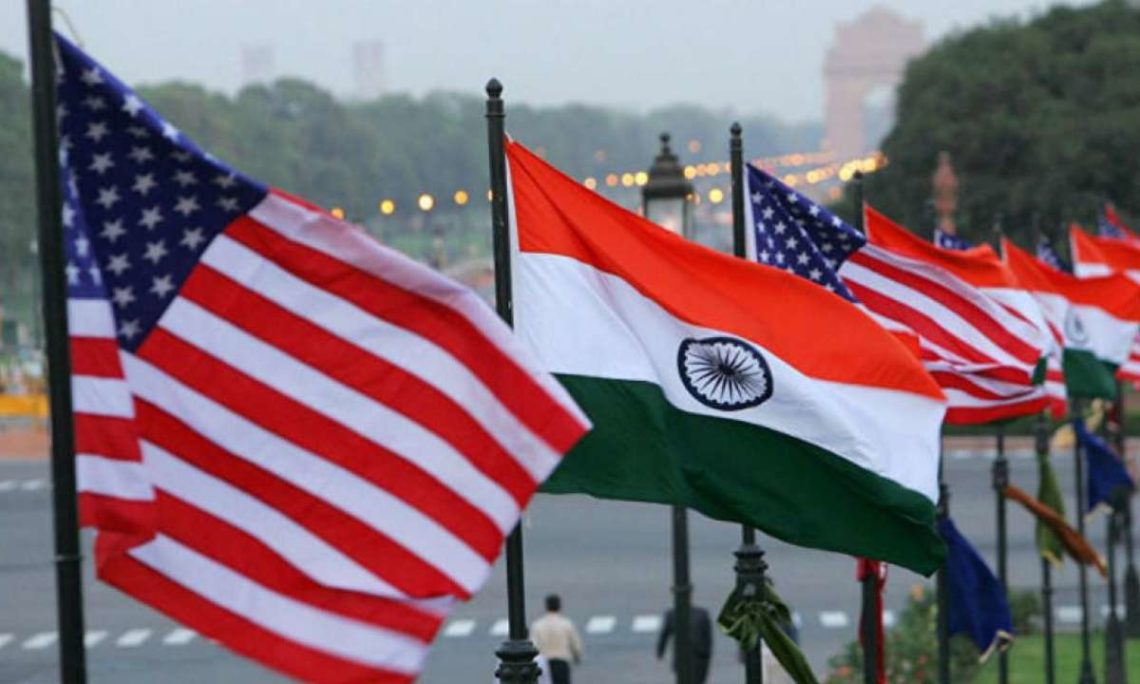(ATF) Two days of talks between top diplomatic and defence chiefs of India and the United States in New Delhi this week has cleared the path for deeper military-to-military cooperation and looks likely to also facilitate sales of high-tech US arms to India.
This was confirmed by the Ministry of Defence, which said the talks on Monday and Tuesday between ministers from the two countries reviewed defence and military-to-military cooperation, as well as ways to take bilateral relations forward.
Included in those discussions were potential new areas of cooperation, both at the service-to-service level and jointly.
In other words, the talks that led to signing of the Basic Exchange and Cooperation Agreement (BECA), have opened doors for India to acquire high-tech arms from the US.
India and the US signed the landmark BECA pact on Tuesday, which gives India access to US satellites’ topographical, nautical and aeronautical data vital for pinpoint attacks using missiles and armed drones.
READ MORE: India signs intel-sharing deal with the US
The bland rationale that is publicly offered is that BECA will allow India’s military to access a range of US topographical, nautical, and aeronautical data, including the US National Geospatial-Intelligence Agency’s (NGA’s) geospatial information bank, defense analyst Ajay Shukla said.
“(However) less publicly acknowledged is the fact that becoming a BECA signatory will take India into a select group of long-range missile powers, which can strike targets thousands of kilometres away with an accuracy of 100 metres or less”.
Signing the Agreement will also allow India to receive advanced navigational aids and flight management systems for several types of aircraft procured from the US, such as the C-17 Globemaster III, C-130J Super Hercules, and P8-I Poseidon, he added.
Auspicious deal for both
Signed after continuing aggression by China on the Ladakh frontier, the deal marks an important moment in bilateral relations between India and US.
BECA happened at a time when both countries were keen to build partnerships to counter what the US sees as a rapid expansion of China’s military presence across the Indo-Pacific region.
Deadly clashes between Indian and Chinese troops over a disputed border region have not only given the Pentagon fresh fuel to draw Delhi closer. The talks in Delhi also took place just days after Washington angered China by announcing of the sale of several billion dollars’ worth of advanced missile and defence systems to Taiwan.
The US and India are now on the same page when it comes to China threat perceptions, Michael Kugelman of the Wilson Center in Washington said.
So, signing BECA has also laid the groundwork for more military exchanges and cooperation on cybersecurity and space, as well as increasing arms sales. The US is particularly keen for India to buy US F-18 fighter jets for its navy, according to reports.
Non-aligned, no more
Meanwhile, the Agreement has also led India to join countries around the South China Sea that are also opposing Chinese claims to sovereignty overlapping their territories.
But Harsh V. Pant, head of Strategic Studies at the New Delhi-based Observer Research Foundation, said, “India discarded non-alignment long ago but loves the rhetoric of non-alignment.”
Officially, India has always been advocating “strategic autonomy”, which is an extension Prime Minister Narendra Modi’s delineation of a new economic strategy, described as “Atmanirbharata” or “self-reliance”, which many say is a version of India’s decades-old classic non-aligned posture.
India continues to practice a policy of non-alignment in an attempt to maintain sovereignty and oppose imperialism. The posture is about creating an independent path in world politics that will not result in lesser states becoming pawns in struggles between major world powers.
But the China challenge has pushed New Delhi off the fence.
“In the wake of the current stand-off with China, there have been calls for India’s foreign policy to shed its inhibitions and make a decisive shift towards the United States, as the only viable option to counter China,” PS Raghavan, a former diplomat and chairman of the National Security Advisory Board, said.
(With reporting by AFP)
























